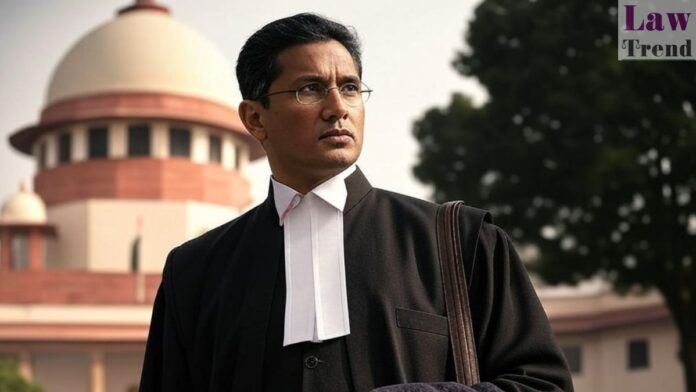In a significant ruling, the Supreme Court of India has struck down adverse observations made against advocate Dushyant Mainali by the Uttarakhand High Court. The apex court emphasized that no individual, including advocates, can be condemned unheard, reiterating a fundamental principle of natural justice.
The bench comprising Justice B.R. Gavai and Justice K.V. Viswanathan delivered the judgment in Civil Appeal No. 15191/2022, arising out of a Special Leave Petition filed by Dushyant Mainali. The case challenged the Uttarakhand High Court’s order dated June 20, 2022, in CLR No. 22/2022, where adverse remarks were passed against Mainali without granting him an opportunity to explain or defend himself.
Background of the Case
The dispute arose when the High Court of Uttarakhand, in the course of proceedings related to a delay condonation application, made adverse remarks against advocate Dushyant Mainali. The High Court accused Mainali of professional misconduct, alleging that he had extended false assurances to his client, leading to delayed filing of a revision petition.
The High Court went a step further and directed the Registrar General to initiate disciplinary proceedings against Mainali before the Bar Council of Uttarakhand under the Advocates Act, 1961.
Mainali, who was not a party to the case nor representing any litigant involved, moved the Supreme Court seeking relief against these adverse observations.
Legal Issues
1. Violation of Natural Justice:
The primary issue was whether the High Court could pass adverse remarks against an advocate without affording him an opportunity of being heard.
2. Judicial Propriety in Making Observations:
The Supreme Court also examined whether the High Court acted within its jurisdiction in making allegations of professional misconduct and directing suo moto proceedings.
The Supreme Court’s Decision
The Supreme Court categorically set aside the impugned observations, holding that the High Court’s approach was “totally unsustainable in law.” The Court relied on established jurisprudence that no one can be condemned unheard—a cornerstone of natural justice.
Key Observations by the Supreme Court:
– “Even the Courts, including the highest court of the country, are bound by principles of natural justice. Nobody can be condemned unheard.”
– “The approach of the High Court in making observations against the appellant without giving him any opportunity of being heard is totally unsustainable in law.”
The Court also highlighted prior instances where the same judge had made questionable remarks against advocates. Reference was made to Neeraj Garg v. Sarita Rani (2021) and a recent case of Siddhartha Singh v. Assistant Collector First Class/Sub Divisional Magistrate.
As a result, the following portion of the High Court’s order was expunged:
“The Bar Council is directed to proceed strictly in accordance with the procedures governing disciplinary proceedings… against the professional misconduct on part of Mr. Dushyant Mainali… within a period of six months.”
Lawyers and Parties Involved
– Petitioner (Appellant): Advocate Dushyant Mainali
– Respondents: Diwan Singh Bora & Another
– Counsel for Petitioner: Mr. Vinod Kumar Shukla, Mr. Abhaya Nath Das, Mr. Sugam Mishra, Ms. Monica Goel, and others.
– Counsel for Respondents: Mr. Bankey Bihari (AOR).




